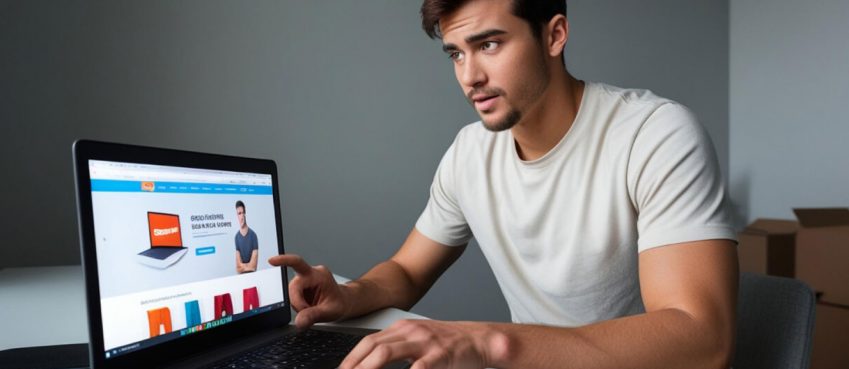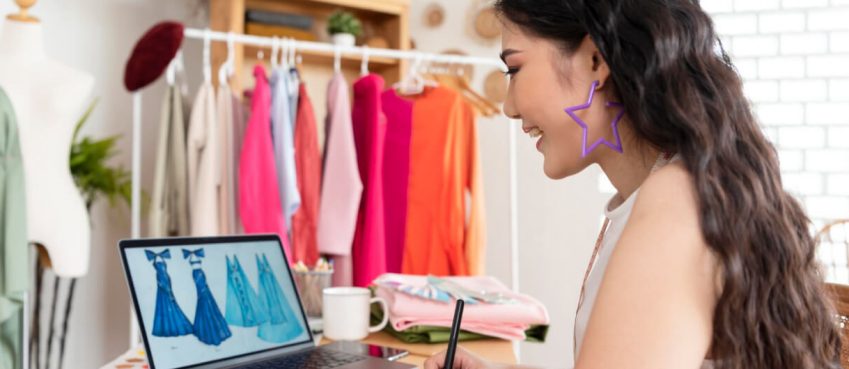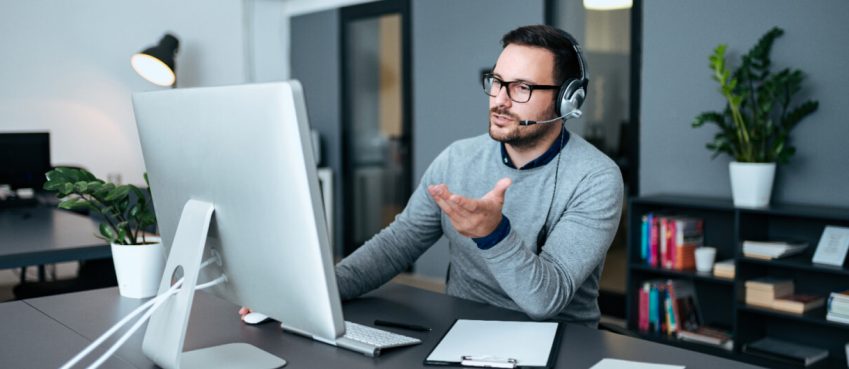
There’s a saying about not being able to change the direction of the wind but being able to adjust one’s sails. This saying aptly captures the state of the retail business (and any other business, actually) as well as what every retail company should do.
Daily in the retail world, new technological trends keep popping up. These trends are designed to make business operations smoother and faster. They are also created to help retail organizations optimize their work processes and make more profits.
Sadly, many retailers are yet to know about these transforming trends. Those who know are unable to make up their minds on which ones are most suitable for their businesses. This article solves these problems. At the end of it, you will learn some of the most useful technological trends for the retail business and be well informed to make the right choices.
Understanding Omnichannel Retailing and Hybrid Shopping

Technological developments in retail cannot be discussed without touching on the rise of omnichannel retailing and hybrid shopping. Covid-19 caused even more disruptions in the industry; it led to an increase in online shopping as people were unable to go to the stores.
Omnichannel retailing involves engaging buyers through multiple physical and digital channels. It is the combined efforts of the retailer to create a coordinated, harmonized, and constant user experience across many channels. Omnichannel is a totally integrated approach to commerce in the technological age.
Hybrid shopping is a combination of traditional brick-and-mortar shopping with online shopping. This shopping experience provides the customer with the BOPIS (buy online pick up in-store) option. On the other hand, buyers can return items purchased online to the store. Hybrid shopping is a bridge between offline and online retail. With it, customers have more options and retailers retain clients and improve sales.
Having a grasp of omnichannel retailing and hybrid shopping will enable you to understand your user, the direction of the retail industry, and how to position yourself for growth.
Also read: Top 10 Business Intelligence Tools of 20217 Tech Trends that will Improve Your Retail Business
Technological waves are here to stay. What determines whether you’re not swept off is your ability to ride on the waves. Riding on the waves involves using the tools for your business growth. Here are 7 tech trends that will improve your retail business.
1. POS Hardware

Getting POS hardware for retail is not a new practice. However, there are now mindblowing upgrades you can’t afford to miss out on. This equipment makes your payment process seamless and quick. It comes in different packages like iPad, desktops, and individual kits. The components include the following:
- Receipt paper
- Receipt printer
- Bluetooth scanner
- Cash drawer
- iPad Stand
Some of the benefits of investing in POS hardware for your retail business are listed below:
- Better customer service
- Improved security
- Fast payment
- Simple invoicing
- Enhanced inventory management
- Time-saving
- Reduced error
- Improved efficiency
- Increased security
- Multi-store functions
- Access to data
2. Shopping Applications
You’ll likely see a shopping app on many people’s phones nowadays. The convenience of being able to order anything with just a couple of clicks has made these apps very attractive. This is a positive development for the retail industry and if you do not yet have an application for your retail business, you’re leaving a lot of money on the table.
One major benefit of having a shopping app for your business is the higher conversion rate. The smooth experience buyers have from features like product filters, wish lists, push notifications and so on makes them want to make purchases. So, if your conversion rate is low, build a shopping app and boost its visibility and engagement.
Another advantage you get from having a shopping application is brand recognition. Your customers have your app on their phones as a constant reminder of the need to shop. Anytime they’re on their phones, they see your company logo and it registers and re-impresses your brand in their minds.
A personalized shopping experience is one of the most beneficial merits of building a shopping app. Buyers now have high expectations and they want more personalized offers and recommendations. An eCommerce app lets you do this. You can gather useful insights on your users and how they interact with your brand and products to give them a more personalized and satisfying experience.
Also read: Blocked On Snapchat: Figure Out What-To-Do, The Fixes, and FAQs3. Indoor Positioning System (IPS)
If you have ever spent precious minutes finding your way in a store, you will appreciate the Indoor Positioning System (IPS). The IPS is a technology that facilitates tracking people and assets within a network of devices. With this tool, shoppers have access to the map of the store, enabling them to plan their visits.
With the IPS, customers can be tracked anywhere they are in the store and offered targeted suggestions on items and deals. All they need to do is to be connected to the store’s official app when they are in the store.
In addition, the IPS showcases the shop’s amenities to maximize usage and optimize customers’ shopping experiences. Also, the interactive content that the IPS provides enables buyers to explore their options before they visit the store. This tool is very useful for omnichannel retailing discussed earlier.
Finally, the IPS is useful for gathering data on customer traffic. It lets you know where your customers go as soon as they enter the store. You will know which locations they prefer to go to and the ones they avoid. With these analytics, you’re equipped to make informed decisions on product placement.
4. Enhanced Video Surveillance (EVS) system
Whether you run a brick-and-mortar, online or hybrid store, you must prioritize security. If you have a physical store, install an Enhanced Video Surveillance (EVS) system to beef up security. With this technology, managers can be alerted of any suspicious activity by customers. These cameras help you monitor your store effectively and optimize product placement while saving on labor costs.
5. Augmented Reality (AR)

Augmented reality is not new to retail. It has provided opportunities for retailers to engage with their customers in new ways. Virtual try-on solutions are the in-thing now in retail. Also known as ‘try before you buy’ applications, these AR solutions let buyers see how they look in products (especially apparel) before purchasing them.
This technology allows shoppers to try these products on to see if they like how they look on them before buying. Apart from apparel, customers can also use AR to see other products like furniture. They can see what the furniture looks like in interior spaces.
6. Artificial Intelligence (AI)
Artificial intelligence is another technological trend that is making retail better and there are still many AI predictions for the coming years. One main benefit is the automation feature. With AI in retail, many tasks that were manually handled are now automated. Workers can now reduce the time they spend on routine tasks and concentrate on creating improved customer experience.
AI also helps retailers prevent theft through the self-checkout system. This system allows buyers in brick-and-mortar stores to scan items by themselves and make payments without the services of a cashier. Aside from giving shoppers more control over the shopping process, AI authentication can be used to input data on shoplifters.
With artificial intelligence, customer service is greatly improved. Chatbots can now help shoppers find their way easily and quickly in the online store. Buyers can also receive customized product recommendations, leading to quicker and more efficient checkouts. This increases customer satisfaction, helps you stay competitive, builds trust for your brand, and increases conversion.
7. Voice Commerce
Also known as V-commerce, Voice commerce lets shoppers purchase products with voice commands. It is a tech trend that makes shopping easier. With their voices, shoppers can order items from their homes, with or without a screen. Using Natural Language Processing (NLP) to interpret a user’s commands, smart assistants execute the actions commanded. No doubt, these assistants with their responsiveness and speech recognition are contributing largely to the retail experience.
Boost Your Retail Business with Technology Trends
New technology trends are introduced into the retail world every other day. These solutions are created to help retailers operate more optimally and improve customer service for better profits. However, knowing which of these trends to jump on can be quite confusing for store owners.
Listed above are the top 7 technological innovations that are making waves in the retail industry. To determine which ones will be most suitable for your business, evaluate the state and phase of your business, audit the trends you’re currently taking advantage of, and list your technological needs.
- 7 Tech Trends to Change Retail
- Artificial Intelligence
- Best 7 Tech Trends to Change Retail
- business
- Channel
- Enhanced Video Surveillance
- Hybrid Shopping
- Indoor Positioning System
- Omnichannel Retailing
- Omnichannel Retailing and Hybrid Shopping
- Retail Business
- Retail Business with Technology Trends
- Retail for the Better
- Shopping Applications
- tech trends
- TNT2023
- Top 7 Tech Trends to Change Retail
- Voice Commerce
Top 10 News
-
01
[10 BEST] AI Influencer Generator Apps Trending Right Now
Monday March 17, 2025
-
02
The 10 Best Companies Providing Electric Fencing For Busines...
Tuesday March 11, 2025
-
03
Top 10 Social Security Fairness Act Benefits In 2025
Wednesday March 5, 2025
-
04
Top 10 AI Infrastructure Companies In The World
Tuesday February 11, 2025
-
05
What Are Top 10 Blood Thinners To Minimize Heart Disease?
Wednesday January 22, 2025
-
06
10 Top-Rated AI Hugging Video Generator (Turn Images Into Ki...
Monday December 23, 2024
-
07
10 Top-Rated Face Swap AI Tools (Swap Photo & Video Ins...
Friday December 20, 2024
-
08
10 Exciting iPhone 16 Features You Can Try Right Now
Tuesday November 19, 2024
-
09
10 Best Anatomy Apps For Physiologist Beginners
Tuesday November 12, 2024
-
10
Top 10 Websites And Apps Like Thumbtack
Tuesday November 5, 2024







